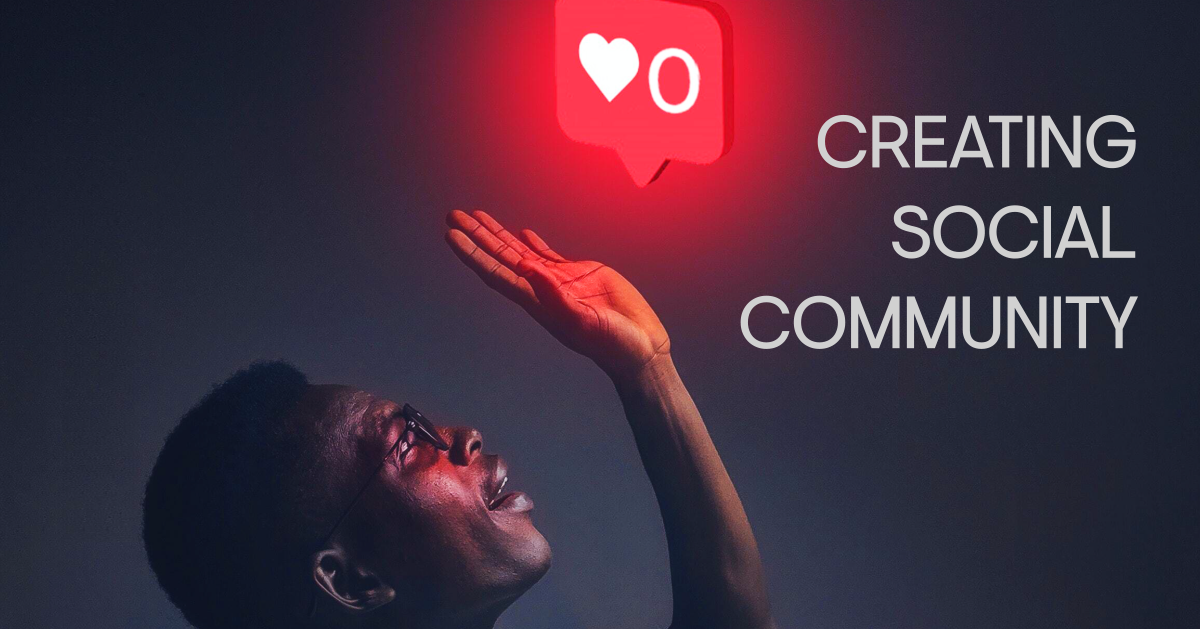4 Rules of Using Social Media to Build Relationships
Using Social Media to Build Relationships
As of 2022, 4.48 billion people are using social media. There’s only 7.9 billion people in the world, so if you’re not utilizing social media to build relationships, now is the time to start.
Brands often make the mistake of seeing social media as a mere sales tool. But many have forgotten how to take that tool and build genuine relationships from it.
So, if you’re ready to understand the techniques of building a strong rapport between business and consumer, here’s our guide to using social media to build relationships.
The art of building relationships
Historian Yuval Harari spoke of humans' amazing ability to connect in large numbers. He said we are the most effective communicators among all species. And if anything, the invention of social media has meant that connecting people should be far more effective now than ever before.
But it's not that simple.
Before, the average salesman would walk into a room and pitch the value of their product direct to consumer. There was eye contact, body language, and persuasive language racketed back and forth like a tennis ball until (fingers crossed) a sale was made. Now though, with more brands using social media, businesses have gotten sidetracked. They have forgotten how to effectively communicate.
Using Social Media to Build Relationships
1. Trust
Consumers first and foremost want a brand to effectively deliver on something that they desire. Humans are accustomed to this kind of give and take relationship. You give me free coffee, I take it. That’s a pretty basic example. The matter is more complicated when we look at ‘give and take’ in terms of happiness. I give you gifts, affection, support and you take (with hopes of it then being reciprocated).
This kind of relationship almost feels unnatural. Why would you give your all to someone and risk it not being reciprocated? Well, that’s trust. At first it’s going to feel very all give and no take. But you have to remember that as a business it’s YOU making the first move. So you have to give in order to get back. When you appease an audience, they are more inclined to trust you and 35% more inclined to buy from you. It’s not a bad relationship, it’s the basics of trade. And trade establishes trust.
Utilize trust by providing top-notch customer service, sharing positive reviews/ testimonials, and being reachable.
2. Loyalty
Ok so you’ve established trust, now you want to prove that you’re worth sticking around for. This is where you need to prove your worth. Building loyalty is all about showing you care. And one of the best ways to do this is by being responsive.
In fact, 72% of millennials said they would be more loyal to a brand that responded to them. And on the flip side, 15% of Twitter users said they will unfollow a brand if the brand wasn’t responsive enough. Being responsive and engaging with an audience means that you’ll grow a loyal following that will inevitably support your brand and repeat sales with you in return.
Establish loyalty by being open and transparent with your consumers, engaging with them, and sharing your values.
3. Reliability
To be seen as reliable you need to show you are responsible. Most consumers will want to see this quality in your business and look for it in numerous ways. Typically, users will be searching for recognition that you are working with legitimate partners or have been in business for a long time. For example, the chocolate company that works with fair trade cacao farmers will perform better than those that aren’t fair trade certified. And the chocolatier founded in 1845 will perform better than the chocolatier who's new to the farmers market.
For many customers sustainability has become an important factor that demonstrates a brand's reliability. Showing that you are responsible for the planet as a business is exactly what customers seek in a reliable role-model. It shows you care, it shows you’re reliable in your production and it shows that the products you sell are responsibly sourced.
Demonstrate reliability by managing commitments, communicating effectively, and staying truthful.
4. Safety
Safety is an often overlooked element of B2C relationships. We’re all looking to protect ourselves, and safety is a concern universally shared by EVERYONE. It’s something that brands should never overlook.
If you’re catering to someone's needs you should know what their concerns are and be ready to cater to the problem. People seek safety from people and they’ll seek safety from your brand too. For businesses this is shown through data protection and transactional security. A staggering 95% of Americans are concerned about businesses collecting and selling personal information without permission. Additionally, over 80% are more concerned about their online privacy and security today than a year ago.
Establish safety by meeting security expectations and making purchasing easy and secure.
Summary
Building relationships with your audience is key to brand success and having substantial ROI. Social media may give you easy access to audiences, but building relationships with your consumers comes from establishing trust, loyalty, reliability and safety.
Remember to showcase these values and demonstrate to your audience exactly why your business is worth investing in.
Keep track of what's happening on Social Media- Check out our BLOG for the latest news and best recommendations.

